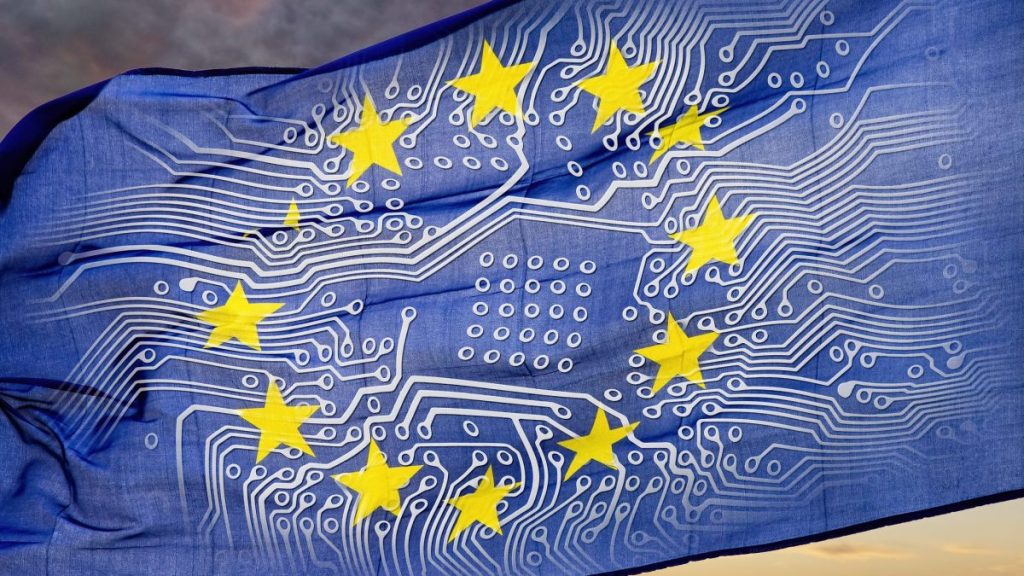New Faces Shaping Europe’s Tech Future

Exciting news is afoot in the European Union as a new team of leaders is set to tackle key technology policies. These officials bring fresh perspectives and the determination to drive change. They’ll navigate digital infrastructure investment, startup support, and enforce laws on big digital companies.
As the Commissioners step into their roles, they foresee a future brimming with potential. They aim to reshape the tech landscape across Europe over the next five years. This change is crucial as tech impacts every facet of life, from economics to social dynamics. The incoming commissioners are ready to make a difference.
Meet Teresa Ribera Rodríguez
Teresa Ribera Rodríguez is poised to take on a pivotal role. She brings a fresh approach to handling competition and tech power. Her task is to ensure fair play among tech giants, something that has challenged her predecessors.
With the Digital Markets Act now in effect, Rodriguez’s leadership is all about reining in the major players. Her proactive stance against tech monopolies intends to make markets more equitable. Apple and Meta are already under her scrutiny.
She will also oversee DMA investigations that may lead to groundbreaking changes in tech practices. Google’s self-preferencing probe is among them. If breaches are confirmed, steep penalties could follow. This would make big digital companies rethink their strategies.
Vision for Faster Competition Enforcement
At her confirmation hearing, Rodríguez emphasized her commitment to faster enforcement of competition laws.
Her focus is on ending acquisitions that block innovation, a move aiming to protect startups from aggressive buyouts. Ribera Rodríguez aligns her goals with wider European interests like green tech.
EU leaders recognize the importance of tech growth for environmental goals. Teresa’s mission is to blend competition policy with tech advances to foster growth and sustainability. Meanwhile, global political forces like the US election outcomes also influence her strategic decisions.
Henna Virkkunen: Guardian of Tech Sovereignty
Henna Virkkunen steps into a role critical for digital age governance. Her broad portfolio includes digital and frontier technologies, marking her influence over AI and cybersecurity.
Virkkunen’s focus will also be on ensuring cybersecurity across the EU. She’ll push for stronger digital skills and infrastructure investment. Her role includes fostering tech development in areas like quantum computing.
The EU’s AI framework requires careful implementation. Virkkunen aims to boost AI innovation while ensuring compliance with new regulations. Her strategic plan includes setting up an AI Research Council to leverage data potential.
Challenges of Enforcing Digital Services Act
Virkkunen will manage the enforcement of the Digital Services Act, keeping tech giants accountable.
She will oversee ongoing investigations into players like TikTok and Facebook. The aim is to create an online environment that is safer and fairer for users. Protecting children online is a priority.
Regulations demand that digital services remove harmful content and remain transparent with their algorithms. X, formerly Twitter, sits at the center of this focus. It must comply to avoid potential regional bans.
Focus on Tech Sovereignty and Safety
Virkkunen is tasked with reinforcing tech sovereignty, ensuring the EU stays competitive globally. Her mission emphasizes partnerships beyond Europe for stronger internet infrastructure.
A key part of this is cyber resilience, where she tackles challenges like misinformation and unethical online practices. This involves working with stakeholders across different sectors.
Protecting personal data and facilitating digital growth is her mission. Her work will help set digital frameworks that prioritize user privacy and safety within the EU’s digital markets.
Ekaterina Zaharieva’s Supporting Role in Innovation
Ekaterina Zaharieva is geared towards nurturing startups and research development within the EU. While her portfolio may not seem as vast, it’s significant in fostering innovation.
Her mission includes simplifying regulations for startups to access venture capital and expand their innovations. Zaharieva’s tenure will be about enabling testbeds for new technologies.
She will spearhead the European Innovation Act, aiming to streamline research and innovation efforts. Her goal is also to ensure EU nations meet their research investment targets, pushing for a robust tech ecosystem.
Driving Startup Growth and Research Support
Zaharieva aims to create a conducive environment for startups through policy reforms.
Her focus is on cutting red tape and advancing access to funding. The European Innovation Council will be crucial in her efforts to support startups. She’s tasked with fostering a network of deep tech investors.
Innovation and research are at the heart of economic growth, and Zaharieva is committed to these goals. She will also assist in setting up the European AI Research Council to bolster the EU’s presence in AI innovation.
Aligning European Innovation with Global Goals
Zaharieva is tasked with aligning Europe’s innovation agenda with global trends, ensuring relevance in the world tech stage.
Her approach will include encouraging collaboration across member states to reach a 3% research spending benchmark. The goal is to ensure tech policies support economic stability and growth.
Ensuring these initiatives take off will require cross-border teamwork, something Zaharieva is prepared for. Her role includes driving legislation that supports emerging industries like AI and next-gen tech.
Conclusion: A New Era for EU Tech Governance
The new lawmakers are set to lead Europe into a dynamic digital age, focusing on innovation, fair competition, and tech sovereignty.
This exciting chapter for the EU marks a determined stride towards a tech forward future. The commissioners are ready to impact the landscape significantly. With strong policies and enforcement, Europe can expect a healthier, more competitive tech environment.





